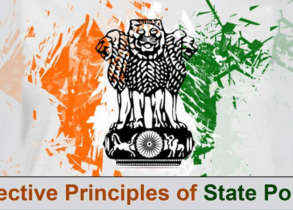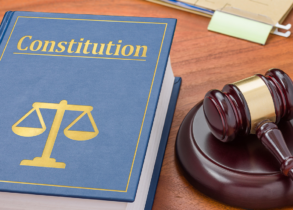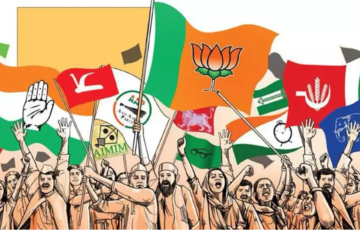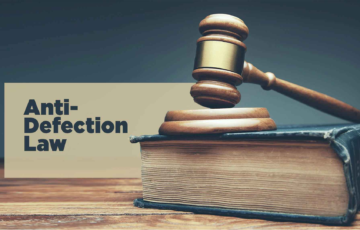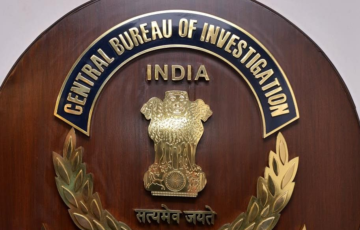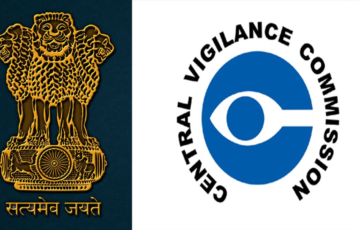FUNDAMENTAL DUTIES
Introduction
- The Indian Constitution originally focused on fundamental rights rather than fundamental duties, viewing them as interconnected and inseparable from the citizens’ perspective. The duties of the State were incorporated as Directive Principles of State Policy. However, in 1976, fundamental duties of citizens were added, with one more added in 2002.
- These Fundamental Duties in the Indian Constitution draw inspiration from the Constitution of the former USSR. Unlike most major democratic countries such as the USA, Canada, France, Germany, Australia, etc., which do not specifically enumerate citizens’ duties, Japan’s Constitution is a notable exception with a list of citizen duties.
- Socialist countries like the former USSR emphasized both fundamental rights and duties, considering them inseparable. In these socialist nations, exercising rights and freedoms was seen as closely tied to the performance of citizens’ duties and obligations.
List of Fundamental Duties
- Article 51-A, added to the Indian Constitution by the 42nd Amendment Act in 1976, outlines the fundamental duties of citizens of India. These duties are considered essential for the well-being and integrity of the nation. Following is the list of fundamental duties enshrined in Indian Constitution:
- Respect for Constitution and National Symbols: Citizens are expected to hold the Constitution, its ideals, and institutions in high regard. This duty extends to showing respect for the National Flag and National Anthem. It underscores the importance of upholding the principles and values enshrined in the Constitution.
- Cherish Noble Ideals of Independence: Citizens are called upon to embrace the noble ideals that inspired India’s struggle for independence. These ideals include justice, equality, non-violence, freedom, brotherhood, and world peace. Upholding these principles is seen as a way to honor the sacrifices made during the freedom movement.
- Uphold Sovereignty, Unity, and Integrity: This duty emphasizes the importance of safeguarding the sovereignty, unity, and territorial integrity of India. It implies a commitment to preventing activities or movements that threaten the unity and integrity of the nation.
- National Service: Citizens are expected to render national service when called upon, which includes defending the country. While this primarily pertains to those in the armed forces, it implies a readiness to support national security and interests whenever necessary.
- Promote Harmony and Brotherhood: Citizens are urged to promote harmony and a spirit of common brotherhood among the diverse population of India. This duty transcends religious, linguistic, regional, or sectional differences. Additionally, citizens should renounce practices that undermine the dignity of women.
- Preserve Composite Culture: India’s rich cultural heritage is to be valued and preserved by every citizen. This duty includes safeguarding cultural traditions, historical sites, and the diverse cultural practices that make up the composite culture of the country.
- Protect Natural Environment: Citizens have a responsibility to protect and improve the natural environment. This encompasses forests, lakes, rivers, wildlife, and overall environmental conservation. It aligns with the broader aim of ecological sustainability.
- Develop Scientific Temperament: Encouraging the development of a scientific temperament among citizens is crucial for adaptation in a rapidly changing world. This duty promotes a rational and evidence-based approach to problem-solving and decision-making.
- Safeguard Public Property: The protection of public property is a duty meant to prevent damage or destruction of public assets. This includes infrastructure, public buildings, and government resources. The aim is to promote responsible behavior and discourage acts of vandalism.
- Strive for Excellence: Citizens are encouraged to pursue excellence in all areas of life. This duty emphasizes the importance of personal and collective achievements for the progress of the nation. Striving for excellence can lead to advancements in various fields.
- Provide Education to Children: Parents or guardians are obligated to provide opportunities for education to their children or wards aged between six to fourteen years. This fundamental duty was reinforced by the 86th Constitutional Amendment Act in 2002, making free and compulsory education a legal right for children in this age group.
- These fundamental duties serve as a reminder of the responsibilities and obligations that come with citizenship in a diverse and democratic nation like India. They contribute to the moral and ethical framework of the society, emphasizing both individual and collective contributions to the welfare and progress of the nation.
Scope
- Fundamental duties in the Indian Constitution are not directly enforceable by law, and there are limited legal sanctions to prevent their violation. However, they carry significance for several reasons:
- Balancing Rights and Duties: Fundamental duties emphasize the importance of balancing rights and duties. If an individual is careless about their duties while seeking the enforcement of their rights, the court may not be lenient in their case. This underscores the idea that rights and duties are interconnected and should be respected equally.
- Interpretation of Ambiguous Statutes: Fundamental duties can assist in interpreting ambiguous statutes. When legal provisions are unclear, the courts can refer to fundamental duties to help clarify the intent of the law.
- Reasonableness of Laws: The courts can consider a law reasonable if it aligns with any of the fundamental duties. This allows the court to uphold a law that may otherwise be deemed unconstitutional. In this way, fundamental duties can help validate certain legislative measures.
Features of Fundamental Duties
- The features of Fundamental Duties in the Indian Constitution encompass a range of moral and civic obligations:
- Moral and Civic Duties: Fundamental duties comprise a mix of moral and civic responsibilities. For instance, they emphasize that Indian citizens should not only uphold the noble ideals that guided the freedom struggle but also demonstrate respect for the Constitution, the National Flag, and the National Anthem. This blend of moral and civic duties underscores the holistic role of citizens in nation-building.
- Exclusivity to Indian Citizens: Unlike fundamental rights, which can often be extended to foreigners residing in India, fundamental duties are exclusively applicable to Indian citizens. These duties are seen as integral to citizenship, emphasizing the unique bond citizens share with the nation.
- Non-Enforceability: A notable feature of fundamental duties is their non-enforceable nature. While they are outlined as important obligations for citizens, there is no legal mechanism or sanction for the government to enforce compliance or penalize violations. Citizens are encouraged to fulfill these duties voluntarily, guided by their sense of civic responsibility.
- Cultural and Traditional Significance: Some fundamental duties are linked to India’s cultural and traditional heritage. For instance, paying respect to the country and promoting the spirit of brotherhood resonate with Hindu traditions and mythology. These duties reflect the cultural values that have shaped Indian society over centuries.
Committees on Fundamental Duties
Sardar Swaran Singh
- The process leading to the inclusion of fundamental duties in the Indian Constitution involved a committee chaired by Sardar Swaran Singh and played a crucial role during the National Emergency. The key points about this committee and its recommendations:
- Chairperson and Committee Formation: Sardar Swaran Singh chaired the committee responsible for studying the Indian Constitution during the National Emergency declared by Prime Minister Indira Gandhi. The committee was tasked with examining the Constitution and recommending amendments based on past experiences.
- Context of National Emergency: The need for introducing fundamental duties in the Constitution became apparent during the National Emergency. The government sought to reinforce the idea of civic responsibilities and ethical obligations among citizens, particularly during challenging times.
- Recommendations for Fundamental Duties: The committee recommended the inclusion of a separate chapter in the Indian Constitution titled “Fundamental Duties.” The objective was to make citizens aware of their duties while enjoying their fundamental rights. This recommendation was accepted by the government.
- Article 51A: As a result of these recommendations, Article 51A was added to the Indian Constitution. Initially, it contained 10 fundamental duties. The government acknowledged that the original framers of the Indian Constitution had omitted these duties, considering it a mistake.
- Accepted and Rejected Recommendations: While many recommendations of the committee were accepted and incorporated into the Constitution, some proposals were not adopted. Two notable recommendations that were not accepted were:
- The suggestion to allow Parliament to impose penalties or punishments for non-compliance with fundamental duties.
- The idea that such penalties or laws related to fundamental duties should not be subject to questioning in a court of law.
- Exclusion of Duty to Pay Taxes: Another recommendation that was rejected was the inclusion of the duty to pay taxes as a fundamental duty. This aspect was not included in the final list of fundamental duties.
- The committee’s work and its recommendations were instrumental in shaping the concept of fundamental duties in the Indian Constitution. These duties serve as a reminder of the responsibilities citizens bear toward the nation and society, alongside their rights. While not legally enforceable, they play a significant role in promoting civic consciousness and ethical conduct among Indian citizens.
Justice Verma Committee’s
- The Justice Verma Committee, established in 1998, played a significant role in devising a strategy for the implementation of fundamental duties in educational institutions. The key details and provisions associated with the committee’s work are as follows:
- Background and Purpose: The Justice Verma Committee was formed with the objective of planning a strategy and methodology to make fundamental duties enforceable in various educational institutions. This initiative was part of a global effort to promote awareness and adherence to fundamental duties. The committee recognized that the non-operationalization of fundamental duties was primarily due to a lack of a concrete implementation strategy rather than a lack of concern.
- Provisions and Recommendations:
- Respect for National Symbols: The committee highlighted the importance of respecting national symbols such as the National Flag, Constitution of India, and the National Anthem. It pointed to the Prevention of Insults to National Honour Act, 1971, which prohibits any form of disrespect towards these symbols.
- Punishment for Promoting Enmity: Various criminal laws were enacted to address actions that encourage enmity between people on the grounds of race, religion, language, and other factors.
- Protection of Civil Rights Act: The committee emphasized the significance of the Protection of Civil Rights Act (1955), which provides for penalties in cases related to caste and religion-based offenses.
- Offenses Against National Integrity: Imputations and assertions that are prejudicial to the nation’s integrity and unity are considered punishable offenses under various sections of the Indian Penal Code, 1860.
- Prevention of Unlawful Associations: The Unlawful Activities (Prevention) Act, 1967, was enacted to prevent communal organizations from being declared as unlawful associations.
- Corrupt Practices: The Representation of the People Act, 1951, holds members of Parliament or state legislatures liable if they engage in corrupt practices, such as seeking votes in the name of religion.
- Protection of Wildlife: The Wildlife (Protection) Act, 1972, was introduced to protect and prohibit the trade in rare and endangered animals, aligning with the principles of fundamental duties.
- Conservation of Forests: The Forest (Conservation) Act, 1980, was implemented to ensure the proper implementation of Article 51A(g), which emphasizes the duty of citizens to protect the environment.
- The Justice Verma Committee’s efforts aimed to promote a culture of responsible citizenship by integrating the understanding and practice of fundamental duties in educational institutions. These duties are seen as essential for upholding the values and integrity of the nation.
Significance of Fundamental Duties
- Fundamental duties play a crucial role in shaping the character of the nation and fostering a sense of civic responsibility among its citizens. Key points highlighting the importance of fundamental duties are as follows:
- Emphasis on Human Dignity and Harmony: Fundamental duties emphasize the importance of human dignity and create a sense of harmony within the community. They encourage citizens to bridge societal gaps and contribute positively to the betterment of society.
- Uplifting Society: To uplift society, it is essential for each citizen to fulfill their duties towards the community. These duties serve as the foundation for building a strong national character.
- Enforcing Duties: While there is no direct provision for the enforcement of fundamental duties in the Indian Constitution, judicial reforms and court interventions help in ensuring their adherence. Citizens are reminded that for their fundamental rights to be realized, they must also fulfill their duties.
- Constant Reminder: Fundamental duties act as a constant reminder to citizens that while enjoying their fundamental rights, they should not forget their obligations and responsibilities towards the nation.
- Anti-Social Activities: These duties serve as a deterrent against engaging in any form of antisocial activities. They promote ethical conduct and discourage actions that may harm the larger society.
- Active Participation: Fundamental duties encourage citizens to actively participate in society rather than being passive observers. They promote engagement and contribution to the collective welfare of the nation.
- Discipline and Commitment: These duties instill a sense of discipline and commitment towards society. They remind citizens that their actions have an impact on the broader community.
- Determining Constitutionality of Laws: Courts can use fundamental duties as a reference for determining the constitutionality of laws. If a law aligns with the principles of fundamental duties, it is more likely to be considered reasonable and just.
- Enforcement and Penalty: In cases where fundamental rights are enforced by law, Parliament has the authority to impose penalties or punishments for violations. This reinforces the idea that rights and duties go hand in hand.
- National Anthem and Flag: The Supreme Court’s directive to play the National Anthem in cinema halls and display the National Flag reflects the importance attached to fundamental duties. These actions serve as a public reminder of citizens’ responsibilities towards their nation.
- Fundamental duties are a vital component of India’s constitutional framework, encouraging citizens to uphold the values of justice, liberty, equality, and fraternity while actively participating in the nation’s progress and development.
Criticism of fundamental duties
- Criticism of fundamental duties in the Indian Constitution has been voiced on various grounds. These criticisms highlight the limitations and challenges associated with the concept of fundamental duties:
- Exhaustiveness of the List: Critics argue that the list of fundamental duties is not exhaustive. They believe that many essential duties, such as paying taxes and casting votes, suggested by committees like the Swaran Singh Committee, were not included in this list. The omission of these duties is seen as a limitation.
- Complex Language and Ambiguity: Some of the fundamental duties are expressed in complex language, making them difficult for the common citizen to understand. Words like “composite culture” may be ambiguous and not easily comprehensible for the average person. This lack of clarity can hinder the true understanding and implementation of these duties.
- Non-Enforceability: One of the major criticisms is that fundamental duties are not enforceable by a court of law. Critics argue that the inclusion of non-enforceable duties in the Constitution serves little practical purpose, as there are no legal sanctions for violations. This leads to questions about the effectiveness and relevance of these duties.
- Redundancy: Some fundamental duties are considered redundant, as they pertain to actions that citizens typically perform as a matter of course. For example, showing respect to the National Flag and National Anthem is viewed by critics as a duty already inherent in patriotic behavior, and therefore, inclusion in the Constitution may be unnecessary.
- Placement in the Constitution: Critics suggest that the placement of fundamental duties in Part IV-A of the Indian Constitution, following the Directive Principles of State Policy, may diminish their importance. Some argue that these duties should have been placed in Part III, alongside the Fundamental Rights, to emphasize their significance.
- These criticisms highlight the challenges and limitations associated with fundamental duties. While they serve as a reminder of civic responsibilities, their practical implementation, comprehension, and enforceability have been subjects of debate and discussion.
Relationship Between Fundamental Rights, Directive Principles, And Fundamental Duties
- The relationship between fundamental rights, directive principles, and fundamental duties in the Indian Constitution is complex and intertwined. These constitutional elements work together to establish a harmonious and balanced governance framework:
- Harmonization of Fundamental Rights and Directive Principles: In cases where a conflict arises between the constitutional validity of legislation and fundamental rights, the directive principles have been utilized to uphold the constitutionality of such legislation. Article 31C, added by the 25th Amendment, stipulates that laws aimed at implementing directive principles, specifically those outlined in Article 39(b)-(c), will not be deemed invalid for allegedly infringing upon fundamental rights (Articles 14, 19, and 31). This provision serves as a mechanism for reconciling social welfare goals with individual rights.
- Supreme Court’s View: After the landmark Kesavananda Bharati Case, the Supreme Court of India adopted the perspective that fundamental rights and directive principles are not mutually exclusive but are complementary and mutually reinforcing. They collectively aim to facilitate the establishment of a welfare state through social reform.
- Promotion of Fundamental Duties: The Supreme Court has upheld the constitutional validity of various statutes that promote the objectives outlined in the fundamental duties. While fundamental duties are not directly enforceable by courts, the judiciary can encourage their implementation by directing the state to take necessary actions. This underscores the importance of fundamental duties in fostering a sense of responsibility among citizens.
- Enforcement Mechanisms: Unlike fundamental duties, which are non-enforceable through courts, fundamental rights can be enforced through legal avenues. Article 32 of the Constitution empowers the Supreme Court to enforce fundamental rights, while Article 226 grants similar authority to High Courts. Nevertheless, courts consider the interplay between fundamental rights, fundamental duties (Article 51A), and directive principles (Part IV) when interpreting the limitations on rights or assessing the reasonableness of restrictions imposed on them.
- Balancing Act: The judiciary recognizes the need to strike a balance between fundamental rights, their restrictions, and fundamental duties. An undue emphasis on either fundamental rights or duties could upset this balance. Duties are seen as a source of rights, and courts take into account fundamental duties present in Article 51A when assessing the reasonableness of legislative restrictions on various freedoms.
- Common Thread in the Constitution: Courts have observed a common thread running through Part III (fundamental rights), Part IV (directive principles), and Part IV-A (fundamental duties) of the Constitution. These parts collectively establish the framework for governance, rights, and responsibilities in India. Courts consider this constitutional continuum when interpreting provisions and making legal determinations.
- In essence, the Indian Constitution envisages a holistic and interconnected approach to governance and individual rights. It recognizes that fundamental rights, directive principles, and fundamental duties are not isolated concepts but are interrelated elements that collectively contribute to the social, political, and economic development of the nation. Courts play a pivotal role in interpreting and applying these constitutional provisions in a balanced manner.
Conclusion
- Fundamental duties are crucial in a democratic state, as they allow people to enjoy their rights and remind them to perform their duties towards the nation. Though some duties have also been made enforceable through separate law, they do not diminish the value of other duties provided in Article 51A. It is not only the government’s duty to provide everything in the Constitution, but also the citizens’ responsibility to be conscious of their role in society. These duties instill a sense of social responsibility and are always considered when interpreting fundamental rights.
UPSC PREVIOUS YEAR QUESTIONS
1. Under the constitution of India, which one of the following is not a fundamental duty? (2011)
1. To vote in public elections
2. To develop the scientific temper
3. To safeguard public property
4. To abide by the Constitution and respect its ideals
2. Which of the following is/are among the Fundamental Duties of citizens laid down in the Indian Constitution? (2012)
1. To preserve the rich heritage of our composite culture.
2. To protect the weaker sections from social injustice.
3. To develop the scientific temper and spirit of inquiry.
4. To strive towards excellence in all spheres of individual and collective activity.
Select the correct answer using the codes given below:
1. 1 and 2 only
2. 2 only
3. 1, 3 and 4 only
4. 1, 2, 3 and 4
3. “To uphold and protect the Sovereignty, Unity and Integrity of India” is a provision made in the: (2015)
(a) Preamble of the Constitution
(b) Directive Principles of State Policy
(c) Fundamental Rights
(d) Fundamental Duties
4. Which of the following statements is/are true of the Fundamental Duties of an Indian citizen? (2017)
1. A legislative process has been provided to enforce these duties.
2. They are correlative to legal duties.
Select the correct answer using the code given below:
(a) 1 only
(b) 2 only
(c) Both 1 and 2
(d) Neither 1 nor 2


